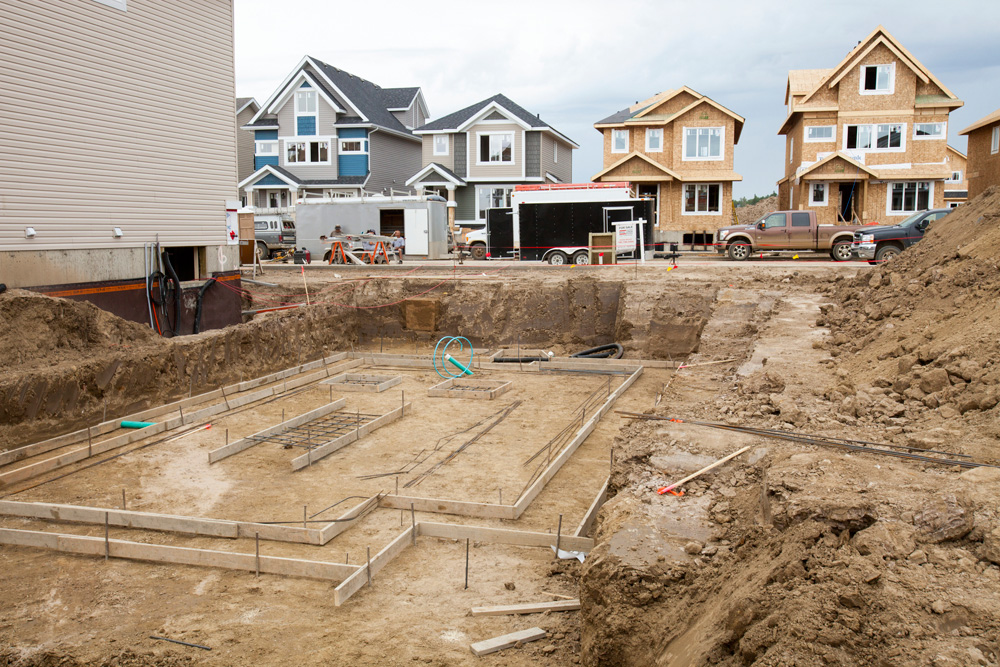Covid-19 has affected everything in our lives: How we work, how we play, how we shop. It’s also had a big impact on where we’ve been buying housing and what kind of housing we’ve been buying. What is the outlook for this year, though? Are the trends started in 2020 set to continue? Here are some predictions on the impact of Covid-19 on the Canadian housing market in 2022.

Interest Rates Will Go Up
One of the biggest economic factors affecting real estate is interest rates. When the pandemic hit, interest rates were cut to historic lows in an effort to help boost the economy. Now that things are looking up again, interest rates may be following suit and also looking up. RE/MAX suggests the first interest-rate hikes could start as soon as April, in time for the traditionally busy spring period in real estate.
Related: 20 Real Estate Terms Every Aspiring Homeowner Should Know

The Market May Slow Down, But Not Significantly
The rush to buy before the higher interest rates kick in may continue. After that, things may slow down. But as Zoocasa points out, fixed mortgage rates would need to rise 3.25 percent before the amount buyers will qualify for will change. The Canadian Real Estate Association – CREA – predicts an 8.6 percent drop in home sales after a record-breaking 2021.

Prices Will Continue to Rise
Real estate prices will continue to rise as remote working has made it more possible for people to live where they want and migrate across provinces. Reuters predicts the average house price to rise by 18.6 percent, RE/MAX predicts an increase of 9.2 percent and CREA predicts an increase of 7.6 percent. So, how much less $1 million will get you across Canada this year depends on who you ask.

Atlantic Canada Remains the Hottest Market
One of the most popular regions for people to migrate to during the pandemic has been Atlantic Canada, where you could find some of the cheapest houses for sale in Canada and the provincial governments’ early responses have kept Covid numbers relatively low. This region remains a hot market, with RE/MAX predicting house price increases of 20 percent for Moncton and 16 percent for Halifax.

Smaller Towns May Continue to See Growth
Even when people haven’t moved outside of their provinces, they flocked to smaller, more affordable towns where they had more space for weathering lockdowns. This trend may continue as the Canada real estate bubble continues and housing in big cities remains unaffordable.

Supply Will Remain Low
The low prices of a real estate crash in Canada still seem like a pipe dream since demand will continue to far outweigh supply. Zoocasa says that in months where sales dipped during 2021, the reason was that there simply wasn’t anything available to buy. This may be exacerbated as immigration picks up and newcomers need housing too.

There’s No Major Construction Boom Expected
RE/MAX doesn’t expect major new construction for 2022. Possible reasons could be supply-chain issues and the emergence of new Covid variants affecting the availability of construction workers. This lack of new construction, of course, will exacerbate the low supply of housing.
Related: Rock Solid Builds Season 2

Single-Family Homes Remain Most Popular but the Condo Market Will Pick Up
One of the unusual real estate trends as a result of the pandemic was the move to single-family detached homes in the suburbs and the move away from condos. Potential buyers wanted space for home offices, to keep a dog, a backyard and not having to share elevators with others. While single-family homes remain most in demand – Royal LePage projects a median price increase of 11 percent – condo prices will rise by 8 percent as downtown entertainment cores open up again.

The Rental Market Will Remain Strong
With housing affordability remaining out of reach for those wanting to enter the Canadian housing market, the rental market will remain strong. Reuters points out that this is especially true where people need to live close to their workplaces as they move back to in-office work. Moreover, students going back to in-person classes and newcomers to Canada may help drive the rental market.
Related: What Renting a 2-Bedroom Apartment Looks Like in Canada

Virtual Transactions Are Here to Stay
During lockdowns, real estate agents moved online, offering virtual tours of homes and making it easier to do the paperwork online too. Both RE/MAX and Zoocasa predict that this way of buying and selling homes is here to stay. In fact, one of the things millennial buyers want in a new home is a great online presence.
HGTV your inbox.
By clicking "SIGN UP” you agree to receive emails from HGTV and accept Corus' Terms of Use and Corus' Privacy Policy.





